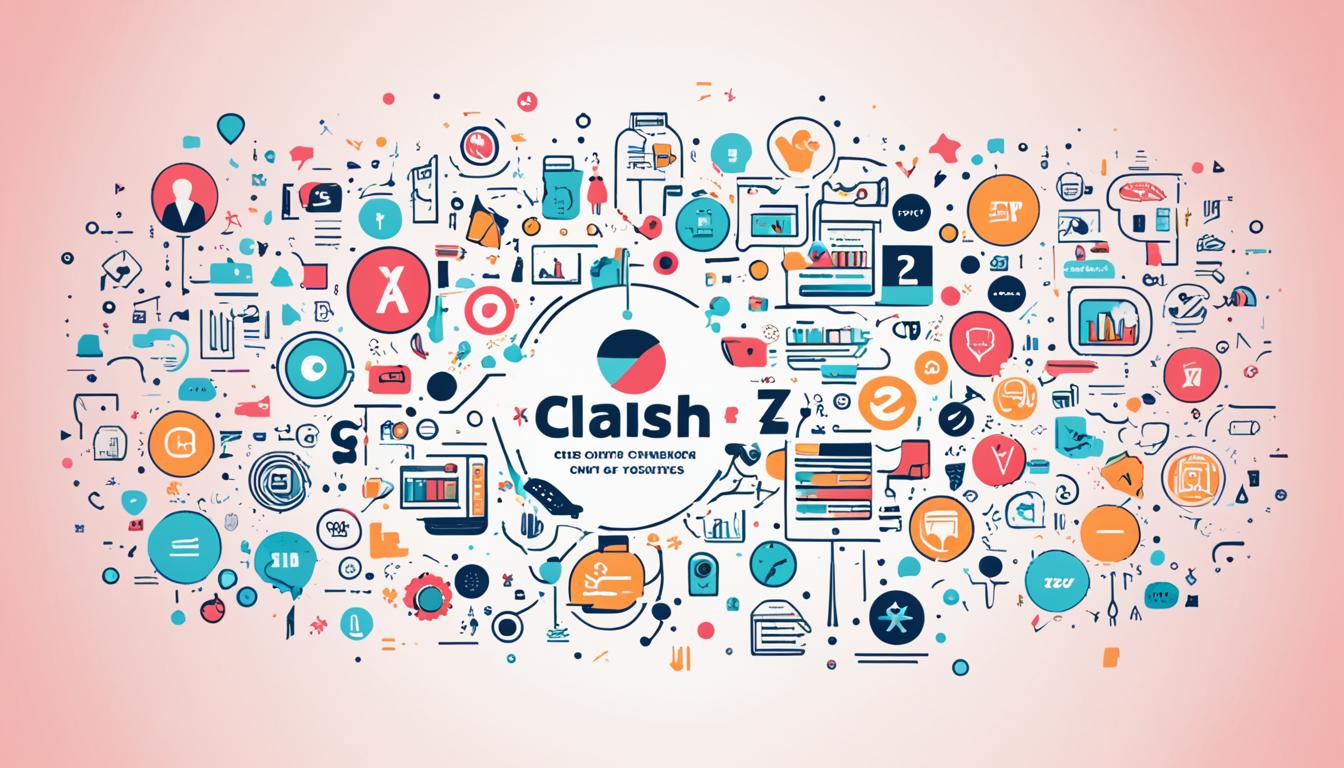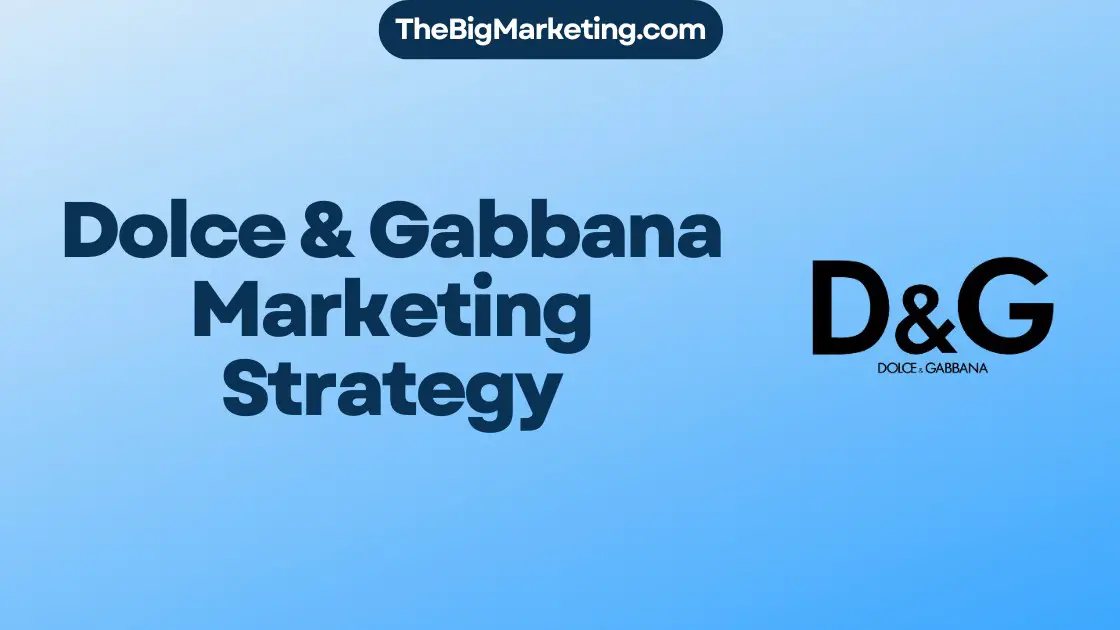Permission marketing is a powerful concept that has revolutionized the way businesses engage with their audience. Unlike traditional direct marketing methods, permission marketing gives individuals the choice to opt-in and receive promotional messages, ensuring that marketing efforts are targeted and relevant.
Popularized by marketing guru Seth Godin, permission marketing is characterized by being anticipated, personal, and tailored to the individual’s interests. It enables businesses to build trust and establish genuine connections with their customers, leading to higher conversion rates and long-term loyalty.
Some common forms of permission marketing include email newsletters, loyalty card programs, and exclusive offers that customers can choose to receive. By obtaining explicit consent from individuals, businesses can deliver value-driven content that resonates with their audience, resulting in a more engaged and responsive customer base.
Key Takeaways:
- Permission marketing allows individuals to opt-in and receive promotional messages.
- It is characterized by being anticipated, personal, and tailored to the individual’s interests.
- Advantages of permission marketing include low cost, higher quality leads, and compliance with regulatory requirements.
- Effective permission marketing strategies require obtaining explicit consent and delivering value to the audience.
- Transparency, respect for privacy, and freely given consent are key ethical considerations in permission marketing.
Understanding Permission Marketing
Permission marketing has gained popularity as a contrasting approach to direct marketing, which involves sending promotional material to a wide customer population without their consent. In the digital marketing realm, permission marketing has become increasingly prevalent.
A common example of permission marketing in the digital space is subscription email updates. Customers have the option to opt-in and receive periodic emails tailored to their interests. This approach allows businesses to deliver targeted and personalized marketing messages, fostering stronger relationships with potential customers.
How Permission Marketing Differs
In contrast to direct marketing, where messages are sent without consent, permission marketing empowers individuals to choose how they are marketed to. This approach aligns well with the digital age, where businesses can leverage data to understand customer preferences and create tailored marketing experiences.
The Power of Personalization
Permission marketing enables businesses to deliver content that is highly relevant to individual customers. By obtaining explicit consent, businesses can collect and utilize data effectively, leading to more personalized marketing messages. This personalization helps build stronger connections and engagement with customers.
Overall, permission marketing allows businesses to adopt a more customer-centric approach, focusing on building relationships and providing value rather than intrusive or irrelevant advertising.
| Direct Marketing | Permission Marketing |
|---|---|
| Messages sent without consent | Customer chooses to receive marketing messages |
| Less targeted and personalized | Highly targeted and personalized |
| Potential for customer annoyance | Stronger customer relationships |
Advantages of Permission Marketing
Permission marketing offers several advantages for businesses. It provides a low-cost and effective way to create relationships with potential customers. By allowing users to self-select into receiving marketing messages, businesses can target higher quality leads who have already demonstrated interest. Additionally, permission marketing aligns well with regulatory compliance requirements, such as the General Data Protection Regulation (GDPR).
One of the key advantages of permission marketing is its cost-effectiveness. Traditional marketing methods often come with high expenses, such as paid advertisements and mass mailings. In contrast, permission marketing allows businesses to focus their efforts on individuals who have willingly expressed interest in their products or services. By targeting a prequalified audience, businesses can make the most of their marketing budget and maximize ROI.
Another advantage of permission marketing is its ability to generate higher quality leads. When individuals give their explicit consent to receive marketing communications, they are more likely to have a genuine interest in the brand. This means that the leads obtained through permission marketing are more likely to convert into customers. By focusing on quality rather than quantity, businesses can improve their conversion rates and increase their bottom line.
Furthermore, permission marketing helps businesses maintain compliance with regulatory requirements. In an era where data privacy and protection are paramount, permission marketing ensures that individuals’ rights to privacy are respected. By obtaining consent from individuals before sending marketing messages, businesses demonstrate their commitment to ethical marketing practices and compliance with regulations like the GDPR.
Overall, the advantages of permission marketing make it a highly valuable strategy for businesses. Its low-cost nature, ability to target higher quality leads, and compliance with regulatory requirements position it as a favorable approach in today’s marketing landscape.
| Advantages of Permission Marketing |
|---|
| Low-cost |
| Higher quality leads |
| Compliance with regulatory requirements |
Permission Marketing vs. Traditional Direct Marketing
Permission marketing and traditional direct marketing represent two distinct approaches to reaching and engaging with customers. Understanding the differences between these strategies can help businesses make informed decisions about their marketing efforts.
The Power of Choice in Permission Marketing
One of the key distinctions between permission marketing and traditional direct marketing lies in the power of choice given to consumers. In traditional direct marketing, businesses often send promotional material to a wide audience without their explicit consent. This approach can be intrusive and may result in a lack of interest or engagement from recipients.
On the other hand, permission marketing allows consumers to choose how they want to be marketed to by actively opting in to receive promotional messages. This gives businesses the advantage of reaching a more receptive audience that has already expressed interest in their products or services.
Targeted and Personalized Communication
Permission marketing enables businesses to deliver more targeted and personalized marketing messages to their audience. By obtaining consent and understanding individual preferences, businesses can tailor their communications to match the interests and needs of their customers.
Unlike traditional direct marketing, where messages are often generic and sent indiscriminately, permission marketing allows for a more focused approach. This personalized communication fosters stronger relationships with customers, leading to increased engagement and loyalty.
Leveraging Data for Effective Marketing
In the digital age, businesses have access to vast amounts of data that can be leveraged to enhance their marketing efforts. Permission marketing capitalizes on this data by allowing businesses to understand their audience better and cater to their specific interests and preferences.
By obtaining explicit consent, businesses can collect valuable information such as customer demographics, browsing behavior, and purchase history. This data can then be used to create targeted marketing campaigns that deliver relevant content, increasing the likelihood of conversion and customer satisfaction.
Image: Differences between Permission Marketing and Traditional Marketing
The Benefits of Permission Marketing
Permission marketing offers several advantages over traditional direct marketing:
- Higher engagement: By targeting an audience that has actively expressed interest, permission marketing achieves higher levels of engagement and participation.
- Enhanced customer relationships: Personalized and relevant communications build stronger relationships with customers, leading to increased loyalty and repeat business.
- Better return on investment (ROI): By focusing marketing efforts on interested individuals, businesses can optimize their resources and achieve a higher ROI.
- Compliance with regulations: Permission marketing aligns with regulatory requirements, ensuring businesses obtain proper consent and respect individuals’ privacy rights.
Overall, permission marketing offers businesses a more effective and customer-centric approach to marketing. By giving consumers the power to choose, delivering personalized content, and leveraging data insights, businesses can build meaningful connections with their audience and drive better results.
Strategies to Obtain Permissions
Obtaining consent from individuals is crucial in permission marketing. Businesses can employ several strategies to acquire and maintain permissions.
- Clear communication of the value proposition: When seeking permission from individuals, it is essential to clearly communicate the value they will receive by opting in. Let them know the benefits they can expect to receive, such as exclusive offers, informative content, or personalized recommendations.
- Offering multiple opt-in opportunities across various touchpoints: Provide your audience with multiple opportunities to opt in to your marketing communications. This can include opt-in forms on your website, social media profiles, and during the checkout process. The more accessible and visible these opportunities are, the more likely individuals are to opt in.
- Transparency about the frequency and nature of communications: Be transparent about how often individuals can expect to receive communications from you and the type of content they will receive. Honesty builds trust and reduces the likelihood of individuals unsubscribing due to unexpected or excessive communications.
- Delivering value to the audience: It’s important to continuously deliver value to your audience to keep them engaged and interested in receiving your marketing messages. This can include providing relevant and helpful content, exclusive discounts, or access to early releases or events.
- Respecting audience preferences: Respect the preferences and choices of your audience. Provide options for individuals to customize the frequency or type of communications they receive. Allow them to easily unsubscribe if they no longer wish to receive your marketing messages.
- Gathering information from customers when they opt out: When individuals opt out of receiving marketing communications, take the opportunity to gather feedback or insights. This information can help you improve your permission marketing strategy and better understand your audience’s preferences and needs.
By implementing these strategies, businesses can increase their chances of obtaining consent effectively in permission marketing. These best practices not only help build a loyal and engaged audience but also ensure compliance with privacy regulations and foster positive relationships with customers.
| Benefits of Strategies to Obtain Permissions | Key Takeaways |
|---|---|
| 1. Clear communication of the value proposition | – Helps individuals understand the benefits they can receive – Increases the likelihood of obtaining consent |
| 2. Offering multiple opt-in opportunities across various touchpoints | – Increases visibility and accessibility of opt-in opportunities – Maximizes the chances of acquiring permissions |
| 3. Transparency about the frequency and nature of communications | – Builds trust with individuals – Reduces the risk of unsubscribing due to unexpected or excessive communications |
| 4. Delivering value to the audience | – Keeps the audience engaged and interested in receiving marketing messages – Establishes your brand as a valuable resource |
| 5. Respecting audience preferences | – Enhances the audience’s control over the communications they receive – Builds trust and fosters positive relationships |
| 6. Gathering information from customers when they opt out | – Provides valuable insights for improving the permission marketing strategy – Helps understand audience preferences and needs |
Ethical Considerations in Permission Marketing
Transparency and honesty are essential in ethical permission marketing practices. Businesses must provide clear and truthful information about how individuals’ data will be used and implement robust security measures to safeguard personal information. It is important to respect privacy and only collect necessary information. Consent should be freely given, specific, informed, and unambiguous, and businesses should avoid assuming permission. Individuals should have the right to opt out of receiving marketing communications at any time, and businesses must honor these requests promptly and without penalty.
Ensuring transparency in permission marketing builds trust between businesses and consumers. By clearly communicating the purpose and nature of data collection, businesses can establish a foundation of trust and authenticity. This transparency also allows individuals to make informed decisions regarding their involvement in marketing campaigns, fostering a sense of empowerment and control over their personal information.
Furthermore, privacy considerations play a crucial role in ethical permission marketing. Businesses must prioritize the protection of individuals’ personal data and take steps to secure it from unauthorized access or misuse. Implementing robust security measures, such as encryption and regular audits, demonstrates a commitment to safeguarding privacy and instills confidence in consumers.
Freely given consent is the cornerstone of ethical permission marketing. Businesses should never assume permission to market to individuals. Instead, they should obtain explicit consent through clear and unambiguous actions, such as opt-in checkboxes or signed consent forms. This ensures that individuals have willingly chosen to receive marketing communications, promoting a more positive and mutually beneficial relationship between businesses and consumers.
Limitations of Permission Marketing
While permission marketing offers numerous advantages, it is important to acknowledge its limitations in order to make informed marketing decisions. Understanding these limitations can help businesses develop effective strategies to overcome challenges and maximize the benefits of permission-based marketing.
The Challenge of Obtaining and Maintaining Consent
Building a permission-based contact list requires significant time and effort. Businesses must actively seek consent from individuals, often through subscription forms or opt-in opportunities. It can be challenging to convince potential customers to provide their consent, especially when they are already overwhelmed with marketing messages. Moreover, maintaining consent requires ongoing engagement and delivering valuable content to keep subscribers interested and prevent them from opting out.
Limitations in Audience Segmentation
One of the limitations of permission marketing is the difficulty in reaching broader audiences or effectively targeting niche markets. Since obtaining permission is often an individual-based process, businesses may struggle to encompass a wide range of potential customers or segment their audience based on specific demographics or interests. This limitation can hinder the ability to tailor marketing messages to specific groups, potentially limiting the reach and effectiveness of permission-based campaigns.
Consent Fatigue
With the proliferation of digital marketing channels, consumers are inundated with requests for permission across various platforms. This constant barrage of permission solicitations can lead to consent fatigue, where consumers become desensitized and less responsive to marketing messages. The risk of consent fatigue highlights the importance of effectively managing the volume and relevance of marketing content to ensure that recipients remain engaged and receptive to the messages they receive.
By recognizing and addressing these limitations, businesses can refine their permission marketing strategies and optimize their approach to overcome challenges. Balancing the acquisition and maintenance of consent, leveraging innovative audience segmentation techniques, and delivering compelling content can help businesses successfully navigate the limitations of permission marketing and maximize its potential.
Example of Permission Marketing
Many companies utilize permission marketing in their email marketing campaigns as an effective way to connect with their target audience. It allows businesses to send promotional content to individuals who have willingly opted-in to receive such communications. This approach ensures that marketing messages are delivered to an engaged audience who are interested in the brand and its offerings. Permission marketing enables businesses to personalize their emails and provide value to their subscribers, ultimately building strong customer relationships.
Email Marketing Examples
A great example of permission marketing can be seen in the email campaigns of well-known companies like Investopedia and Starbucks. These companies offer newsletters and exclusive offers that customers can choose to opt-in and receive. By subscribing to these email lists, customers receive personalized content that aligns with their interests and preferences.
Permission-based marketing emails come in various forms, including:
- Promotional Offers: Companies often send promotional emails with exclusive discounts, limited-time offers, or freebies to their subscribers. These emails aim to incentivize customers to make a purchase or take advantage of a special deal.
- Membership Perks: Some businesses offer membership programs, where subscribers receive additional benefits such as early access to sales, loyalty rewards, or exclusive content.
- Informative Newsletters: Many companies send newsletters to their subscribers, providing them with valuable industry insights, educational content, tips, and updates about the company and its products or services.
These permission-based marketing emails are tailored to the customers’ preferences and provide value, enhancing the customer experience and fostering brand loyalty.
Non-Permission Based Marketing
Non-permission based marketing involves sending marketing offers to recipients without their consent. This approach can have significant consequences, including consumer frustration, privacy violations, and the potential for lost business.
Unlike non-permission based marketing, permission-based marketing focuses on building trust, delivering value, and fostering brand loyalty with consumers. By obtaining explicit consent from individuals and respecting their preferences, businesses can create positive and meaningful relationships with their audience.
It is crucial for businesses to prioritize gaining consent and delivering valuable content to maintain positive relationships with their audience. By doing so, they can avoid the negative outcomes associated with non-permission based marketing and instead cultivate trust and customer loyalty.
Conclusion
In summary, permission marketing offers businesses an effective and targeted approach to engage with customers. By obtaining consent and delivering personalized and valuable content, businesses can build strong relationships and generate quality leads. This cost-effective strategy aligns with regulatory requirements and allows businesses to connect with their audience on their own terms.
However, it is crucial for businesses to consider ethical considerations in permission marketing. Transparency, respect for privacy, and freely given consent are key factors in maintaining a positive and trustworthy relationship with customers. Furthermore, businesses must be aware of the limitations of permission marketing, such as the challenge of obtaining and maintaining consent, limitations in audience segmentation, and the risk of consent fatigue among consumers.
Nevertheless, permission marketing provides a beneficial alternative to traditional direct marketing. By focusing on delivering value and respecting customers’ preferences, businesses can create meaningful connections and foster brand loyalty. In today’s digital age, permission marketing allows businesses to reach their target audience more effectively and build long-term customer relationships.


